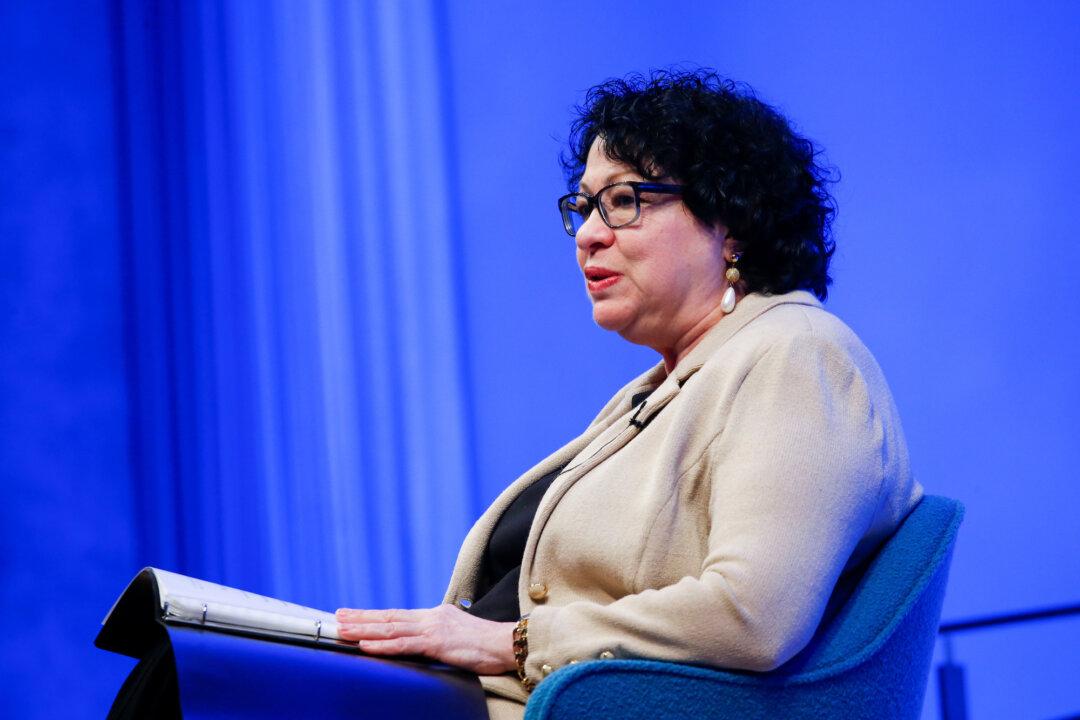Supreme Court Justice Sonia Sotomayor on Jan. 5 lamented the high court’s conservative tilt, telling legal educators she felt a “sense of despair” at the direction taken by the court following rulings that include overturning Roe v. Wade, a decision that handed a major victory to pro-lifers.
She made the remarks during an hourlong conversation with University of California, Berkeley School of Law Dean Erwin Chemerinsky before hundreds of law professors at the Association of American Law Schools’ annual meeting in San Diego.





